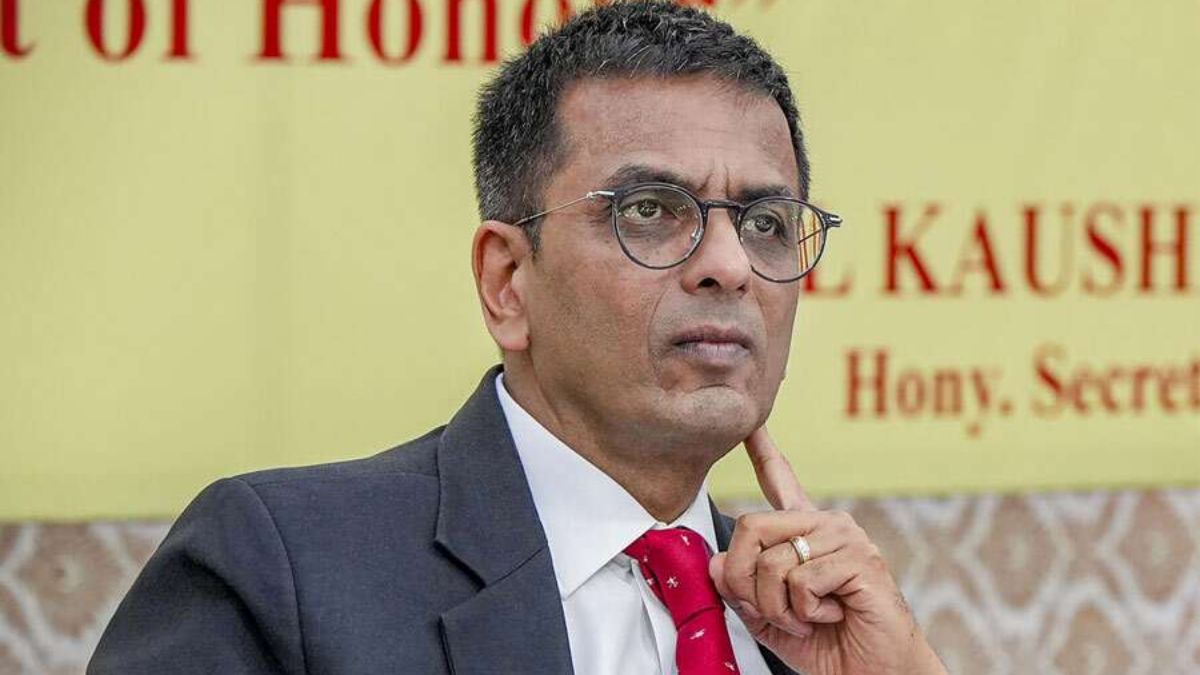Chief Justice of India DY Chandrachud’s remarks on the Ayodhya verdict have caused controversy.
Chandrachud, who was part of the five-judge bench headed by then CJI Ranjan Gogoi which delivered the 2019 verdict, on Sunday said he had prayed to God for a solution to the Ram Janmabhoomi-Babri Masjid dispute.
The bench, which also comprised justices SA Bobde, Ashok Bhushan and SA Nazeer, had paved the way for construction of the temple and ruled that an alternative five-acre plot will be found for a mosque in the holy town in Uttar Pradesh.
But what did Chandrachud say? And what’s the row surrounding his remarks?
What happened?
The CJI made the remarks while addressing residents of his native Kanhersar village in Khed taluka where he was felicitated.
“Very often we have cases (to adjudicate) but we don’t arrive at a solution. Something similar happened during the Ayodhya (Ram Janmabhoomi-Babri Masjid dispute) which was in front of me for three months. I sat before the deity and told him he needs to find a solution,” Chandrachud said.
“Believe me, if you have faith, God will always find a way,” he added.
According to News18, Samajwadi Party MP Ram Gopal Yadav then abused Chandrachud.
“I do not want to make any comments. When you bring ghosts back to life, when you bring the dead back to life, they become ghosts and start following justice. Where are they now?… Forget it, all such ******* people keep on saying such things. Should I take notice of them?” Yadav said.
Yadav later denied making the remark.
He told ANI, “Nobody asked me anything about the CJI. The CJI is a very reputed person. I never made any comment (on him). I was asked about Bahraich (violence) and I responded to that,” he was quoted as saying.
Then, Congress leader Udit Raj jumped into the fray.
The former MP wrote on social media, “Chief Justice Chandrachud ji said that he had prayed to God for the solution of the Ayodhya issue. If he had prayed for some other issues, they would have also been resolved like a common man could get justice from the High Court and Supreme Court without money.”
“Misuse of ED, CBI and IT would have stopped," the ex-IRS office wrote.
‘Unanimously decided no authorship ascribed to judgment’
The CJI had visited the Ram Temple in Ayodhya in July and offered prayers.
The idol consecration of the temple was held on January 22 in the presence of Prime Minister Narendra Modi.
Chandrachud, who was part of the constitution bench, in January said the judges had unanimously decided there will be no authorship ascribed to the judgment.
He was responding to a query as to why the name of the author judge was not made public.
“When the five-judge bench sat to deliberate on the judgment as we all do before a Judgment is pronounced, we all decided unanimously that this will be a judgment of the court. And, therefore, there was no authorship ascribed to any individual judge,” the CJI said.
“The case has a long history of conflict, of diverse viewpoints based on the history of the nation and all those who were part of the bench decided that this will be a judgment of the court. The court will speak through one voice and the idea of doing so was to send a clear message that all of us stood together not only in the ultimate outcome but in the reasons indicated in the judgment,” he said.
“I will close my answer with that,” he added.
Chandrachud is set to retire on November 10.
With inputs from agencies


)

)
)
)
)
)
)
)
)



